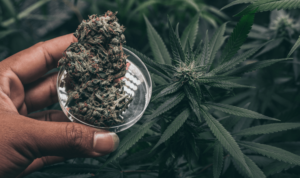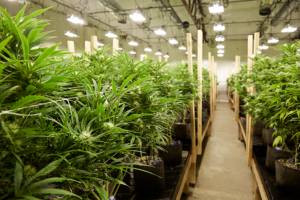Cannabis cultivation is a topic of global interest, with different countries and regions having varying laws, policies, and practices related to it. In Africa, cannabis cultivation has a long history, with some countries having traditional and cultural uses of the plant. However, in recent times, there has been increased interest in cannabis cultivation for commercial and medicinal purposes, presenting opportunities and challenges for the continent.
Cannabis cultivation in Africa is a complex issue due to the diverse socio-economic, political, and environmental contexts. On one hand, cannabis cultivation has been a source of livelihood for some communities, providing income, food, and medicine. For example, in countries such as Morocco, Nigeria, and Lesotho, cannabis has been cultivated for generations, with some estimates suggesting that it is the primary source of income for up to 90% of some rural communities. In such contexts, cannabis cultivation has been an essential part of the local economy, providing jobs and income for millions of people.
On the other hand, cannabis cultivation in Africa has also been associated with illegal drug trafficking, violence, and social problems. Many African countries have strict laws and policies related to cannabis cultivation, with penalties ranging from fines to imprisonment. The criminalization of cannabis cultivation has led to the proliferation of illegal markets, with criminal gangs and drug cartels using the profits from cannabis to fund other illegal activities.
In recent times, there has been increased interest in cannabis cultivation in Africa for commercial and medicinal purposes. The legalization of cannabis in some countries, such as South Africa and Lesotho, has led to increased investment in the sector, with some estimates suggesting that the global legal cannabis market could be worth up to $200 billion by 2030. Africa is well positioned to benefit from this growth, given its favorable climate, abundant land, and low labor costs.
However, there are also challenges to cannabis cultivation in Africa, including regulatory frameworks, access to financing, and infrastructure. Many African countries do not have clear policies or laws related to cannabis cultivation, leading to uncertainty and confusion among potential investors. Access to financing is also a challenge, with many banks and financial institutions reluctant to invest in the cannabis sector due to legal and reputational risks.
Furthermore, the lack of infrastructure, such as roads, electricity, and water, makes it difficult to transport and store cannabis products, reducing the quality and shelf life of the products. This infrastructure deficit also makes it difficult for farmers to access markets and export their products, limiting their potential earnings.
In conclusion, cannabis cultivation in Africa is a complex issue with both opportunities and challenges. While some countries have a long history of cannabis cultivation, there is a need for clear regulatory frameworks and policies to guide commercial and medicinal cannabis cultivation. This will require collaboration between governments, investors, and communities to ensure that the benefits of cannabis cultivation are equitably distributed, while minimizing the risks associated with illegal drug trafficking and social problems.





